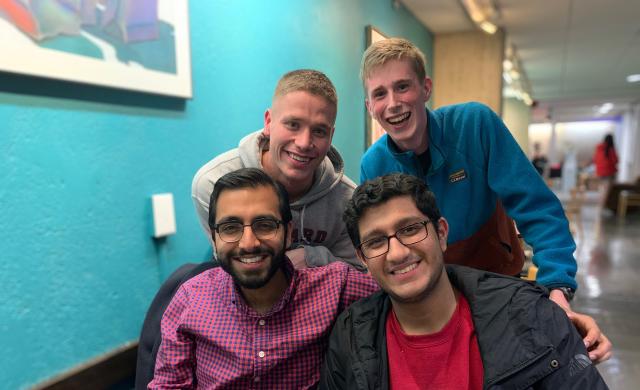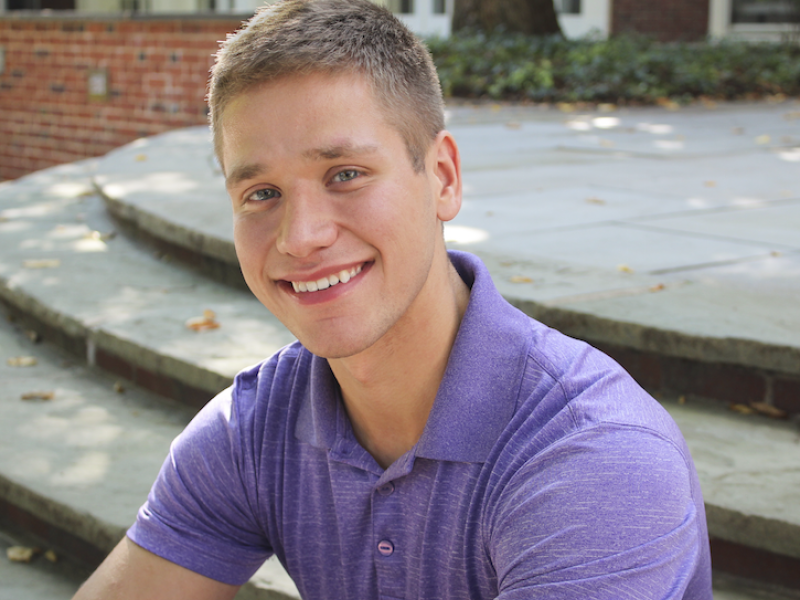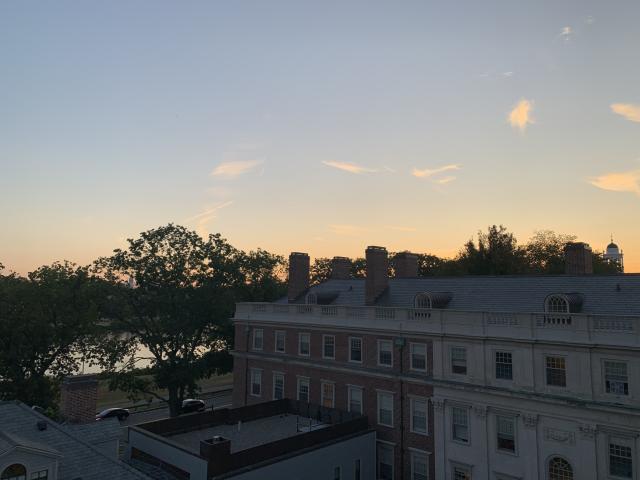We often tell prospective students that Harvard College is a liberal arts college, but what exactly does that mean?
Simply put, in addition to satisfying the requirements for whatever concentration (major) or secondary (minor) that you choose, you will also be expected to fulfill the General Education ("Gen Ed") and Divisional Distribution ("Distribution") requirements of the Harvard College Curriculum. There are hundreds — if not thousands — of courses to choose from to satisfy each of these requirements, most of which will be topics outside of your concentration. This ensures that you explore topics and departments that might be outside of your comfort zone. I came into college intimidated by the challenge of diverse coursework, but through my journey at Harvard, I’ve come to really enjoy my experiences interacting with students and faculty I might not have met otherwise! In this blog, I’ll offer a sneak peak at each of the courses I’ve been able to take to satisfy my Gen Ed and Distribution requirements.
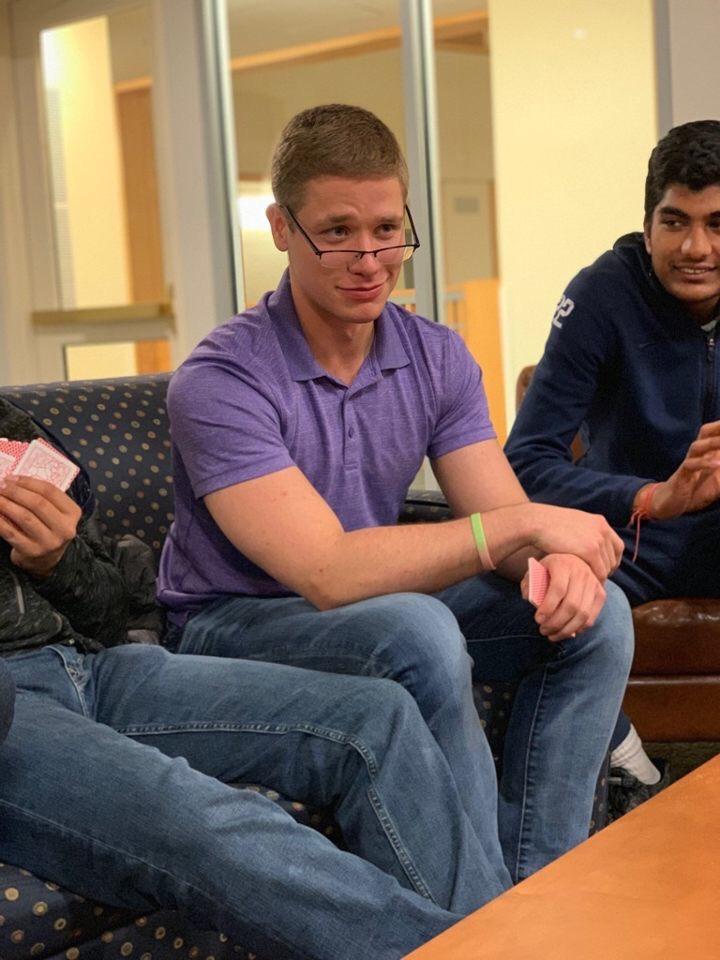
Here is my best and goofiest attempt at looking studious!
Aesthetics and Culture Gen Ed: Elements of Rhetoric
This course taught us a great deal about persuasive writing, public speaking, designing arguments, logical fallacies, and other tools to help us become overall better writers. Through analyzing significant works in American history and writing short, argumentative essays to present before the class, this course helped us fine tune our persuasive skills by making our writing more precise and our public speaking more engaging.
I left this course a better writer and speaker than I was when I came in.
Ethics and Civics Gen Ed: Ethics of Climate Change
This course looked at the problem of climate change with a special focus on ethical obligation. We grappled with questions like “What exactly do we owe our descendants? Why?” and “Should different countries be held to different standards depending on how developed they are?” In class, we went way beyond just whether we should mitigate climate change and, instead, got into the nitty gritty of how much we should have to sacrifice and, ethically, why we are obligated to do so.
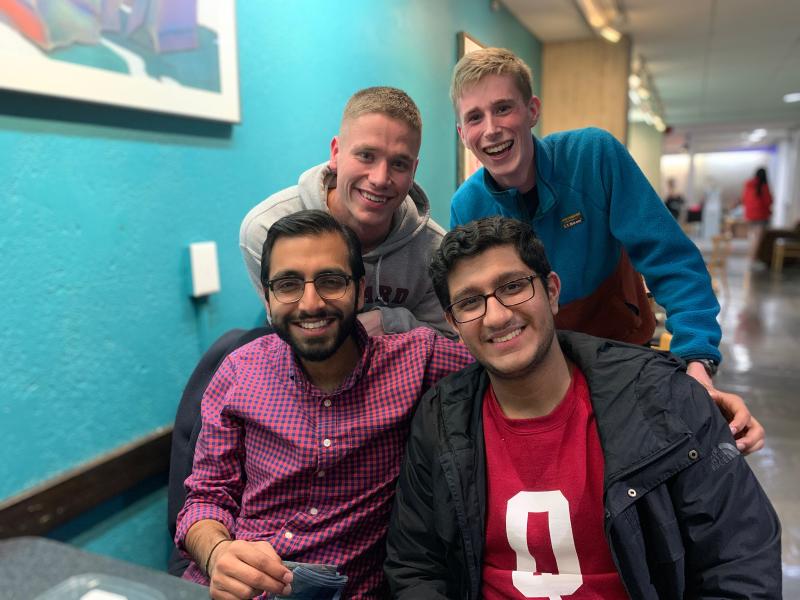
Here I am with my roommates on our last day on campus!
Histories, Societies, Individuals Gen Ed: The Democracy Project
This course examined different critical periods throughout American history and had us read primary documents written by thinkers of each time. In addition to writing essays on different historical debates -- the most exciting component of the course, in my opinion --we also participated in debates. We had to sign up for a handful throughout the semester, arguing in favor of or against a topic like “Resolved: Muller v. Oregon hindered the progress of equality” or “Resolved: The annexation of the Philippines represented a break with American democratic traditions.”
Science and Technology in Society Gen Ed: Natural Disasters
In this course, we discussed some of the science behind different types of natural disasters such as earthquakes, hurricanes, and floods, as well as the role that climate change is playing in exacerbating these phenomena. In addition, we gained some exposure to GIS (Geographic Information System) in order to measure the impacts of natural hazards using maps on our own. It was neat being able to walk away from this course with a tangible skill.

Here I am being scholarly with my parents at a museum
Social Sciences Distribution: American Foreign Policy
I was able to count this course both as a concentration requirement as well as a distributional requirement! This course was an excellent introduction to international relations using U.S. foreign policy as our lens. From theories like IR constructivism to foreign policy strategies like public diplomacy, I felt like I was able to be challenged without being overwhelmed.
Science and Engineering and Applied Science Distribution: Deep Sea Biology
Admittedly, I was nervous for my science distribution; however, deep sea biology was both a welcoming and informative course. The professor’s love for the topic was contagious, there were plenty of show-and-tells, and I felt like I truly learned a lot about a topic way outside of my area of study. From the history of deep-sea exploration to studying mind-blowing adaptations, this turned out to be a really exciting course!
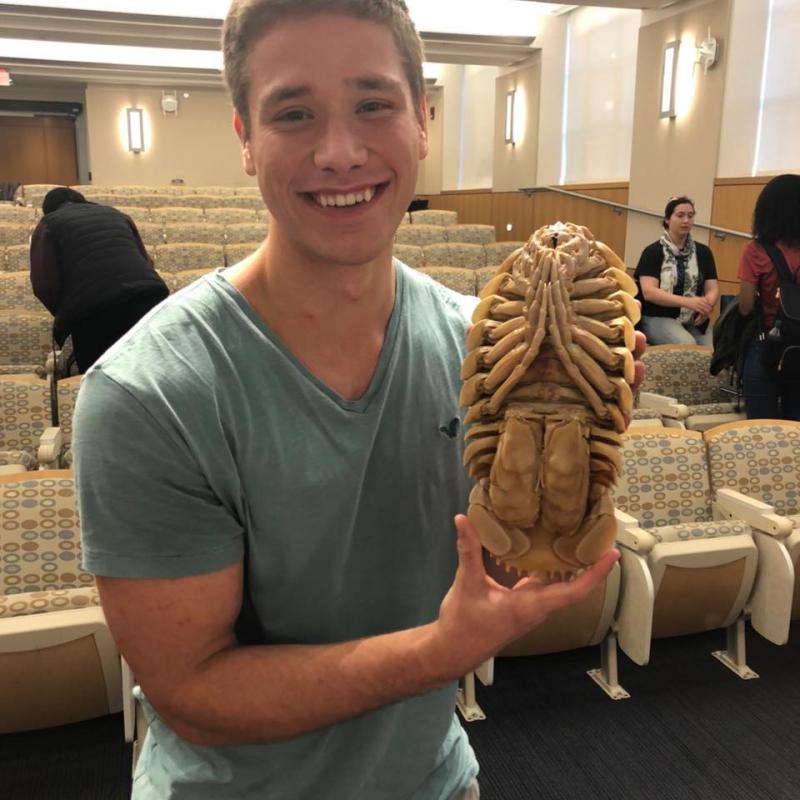
Here I am overcoming my fear and holding a giant isopod!
Arts and Humanities Distribution: TBD!
This is my last graduation requirement. I think this demonstrates that you don’t need to knock out all of your Gen Ed and distribution requirements during your first year. It’s a journey. And these courses are a great way to break up the routine of your concentration courses.
From exciting public speaking classes to accessible science courses for an admittedly science-phobic student, what I was worried would be tedious requirements ended up being fun classes I would never have taken otherwise. I challenge you to find classes that excite you and to give them a shot!

